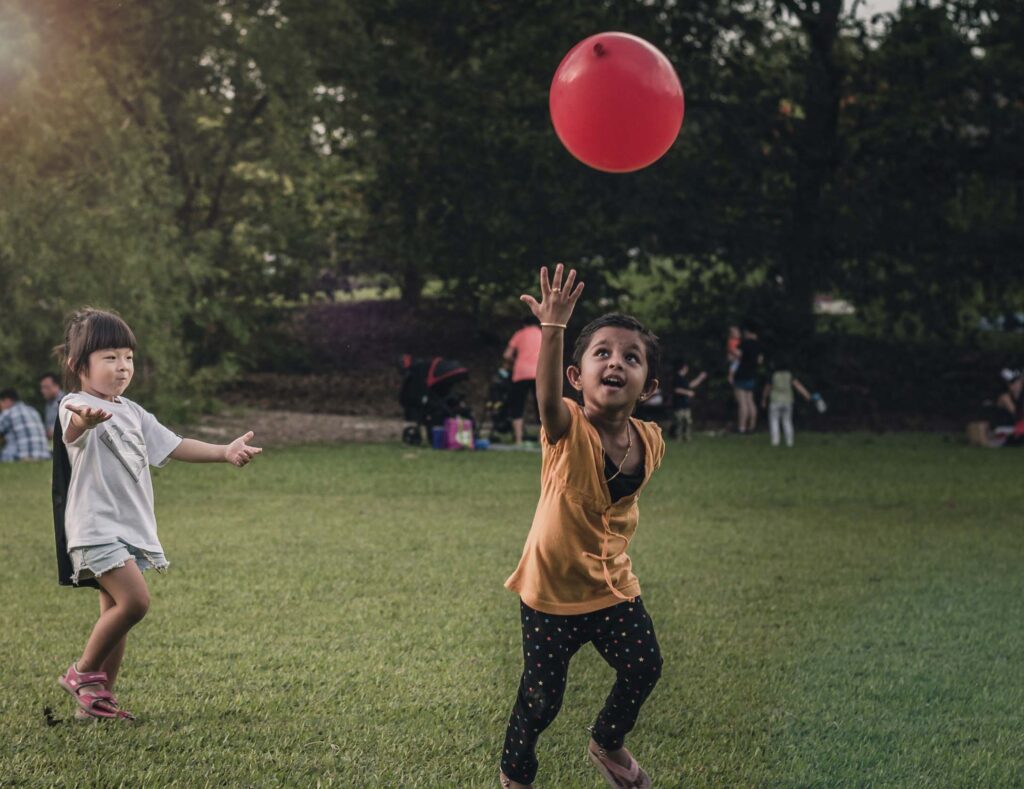
Play is essential to development because it contributes to the cognitive, physical, social, and emotional well-being of children and youth.
“Children are designed, by natural selection, to play,”
“Wherever children are free to play, they do.”
Gray P.
The decline of play and the rise of psychopathology in children and adolescents.
American Journal of Play.
2011;3(4):443-463.
However, the last half-century has seen a decline in children’s opportunities to play. Precisely how fast and how much the opportunity for real free play has declined is difficult to quantify, though historians suggest that the decline has been continuous and great. It has also led to lasting negative consequences.
In that same article, Gray detailed how the lack of play affects emotional development, leading to the rise of anxiety, depression, and problems of attention and self-control.
Gray argues that, without play, young people fail to acquire the social and emotional skills necessary for healthy psychological development.
Why is play so beneficial to children?
“Play is at the core of the development of the child”.
Gray P.
Children experience and learn about their world through play: they explore their physical environment, express their emotions and build their vocabulary through playful moments.
Gray P.
“Play is very natural for children around the world”…“It is a really important tool for children’s cognitive, physical, social and emotional development and also their imagination and creativity.”
What is free play?
Free play is when children have full freedom to play in whatever way they want.
Gray P.
“They can choose everything – they have the freedom to select their play materials, interest area, and even the plot”.
During free play time, children can express themselves in the way that they choose depending on the day, time, and the situation they are in. Every child is unique and has a different way of expressing her/himself and her/his creativity.
You may have a child who wants to draw, but another child will want to play along with a puzzle.
Gray P.
What Experts Say
In a special report on the play, the American Academy of Pediatrics (AAP) outlined a host of payoffs from free play.
Yogman M, Garner A,
Hutchinson J, et al. The power of play:
A pediatric role in enhancing development in young children. Pediatrics. 2018;142(3):e20182058.
doi:10.1542/peds.2018-2058
Including that:
- Allows children to use their creativity and develop their imagination and other strengths.
- Encourages children to interact with and explore the world around them.
- Helps children adjust to school and enhance their learning readiness, learning behavior, and problem-solving skills.
- Helps children learn and practice self-regulation.
- Helps children build decision-making skills.
- Guides children to work in groups so they learn to share and resolve conflicts.
The ability for kids to manage their emotions and behaviors, what experts call emotional regulation may also be a casualty of too little play—and a factor in the high rate of attention deficit hyperactivity disorder (ADHD).
How is free play beneficial to children?
When a child is playing alone, she/he is engaging her/himself, she/he is using her/his imagination, and “from very early childhood she/he is being independent.
Building independence at a young age is beneficial later in life. Free play is also important for learning problem-solving skills. Children can try to solve a problem or come up with a solution on their own while playing. They need to express their own way of thinking. Those skills develop when a child is playing independently.
Parents should encourage toddlers and preschoolers to engage in free play on a regular basis, but with continued supervision, it can even be introduced to babies of 6 months.
How can parents encourage free play at home?
• Make sure your child has a safe space to play in.
• Listen to your child.
• Give some clues and prompts along the way.
• Make it a bonding activity.
So let your child discover Free Play, develop his/her creativity, his/her independence, and have fun!
